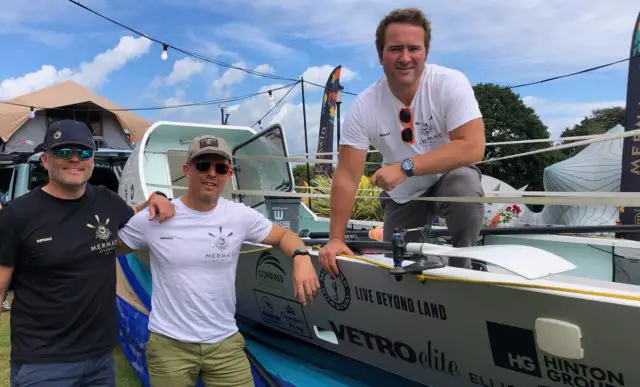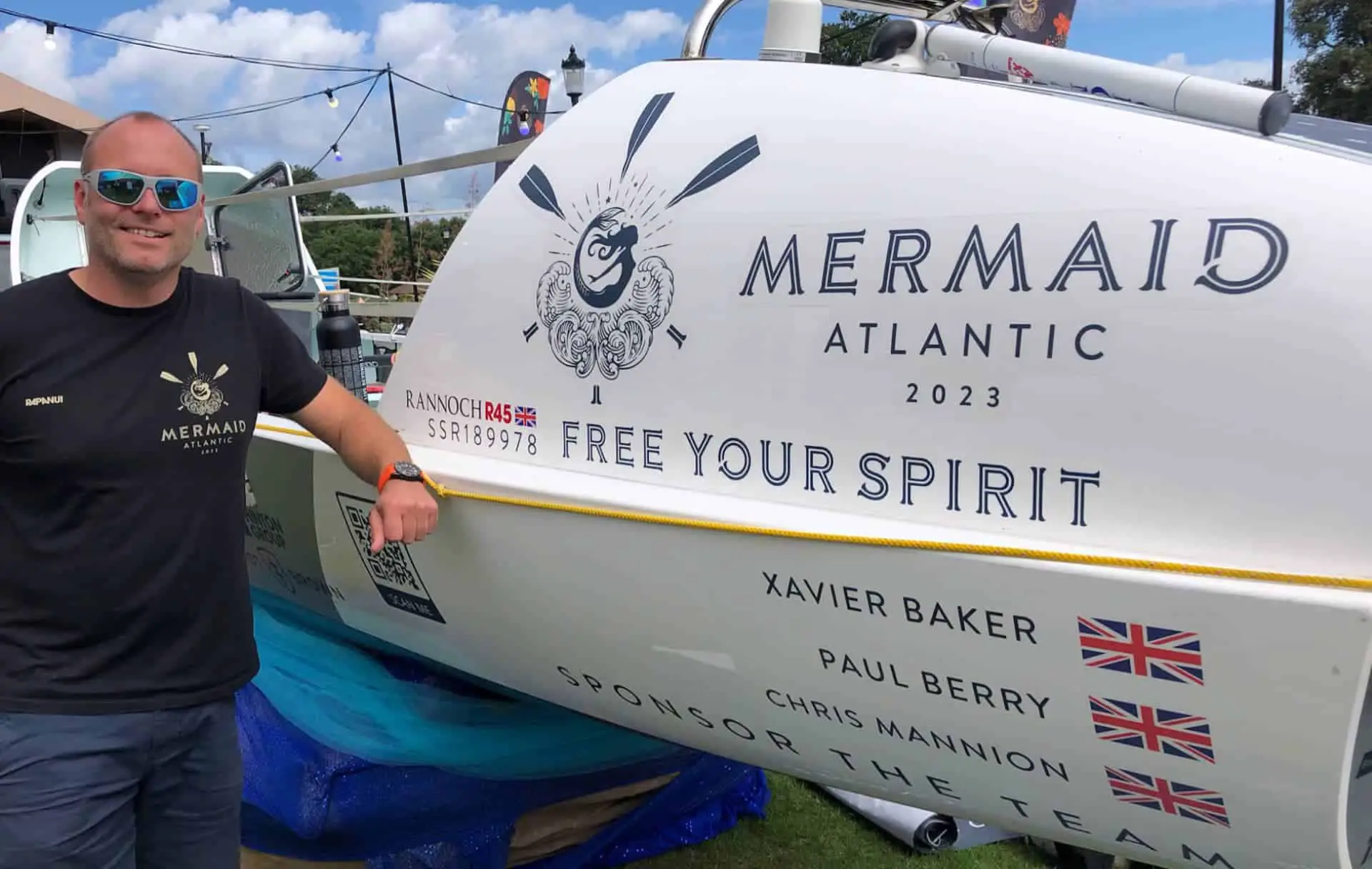Rowing around the Isle of Wight is a pretty mammoth task, so imagine doing that over and over again at least 50 times, without any rest or stopovers, and in some of the worst weather conditions you are likely to face.
3,000-mile Talisker Whisky Atlantic Challenge
That’s what three men from the Isle of Wight will be facing later this year when they head off to take part in the Talisker Whisky Atlantic Challenge, known as ‘the world’s toughest row’, to raise funds for ocean preservation.
In fact, forget the analogy about rowing around the Isle of Wight, this Mermaid Atlantic challenge is going to be nothing like that, it’s going to be way hairier.

Xavier Baker, Chris Mannion and Paul Berry are the three Islanders who have been in training to take part in this challenge and in just a few months they’ll be heading to La Gomera, a small island just off Tenerife ready to embark on a 3,000 mile journey across the Atlantic Ocean in a rowing boat.
Baker: Raising awareness and money for charities that are close to our hearts
Last week News OnTheWight caught up with Xavier Baker to find out more about the motivation for the challenge and what the men are expecting.
Xav began by telling us,
“So we’re going as a trio Mermaid Atlantic and we have been training hard since January with one rest day a week we’ve got a great support team around us. Family has been very supporting of us. And we’ve got some great sponsors because it’s a big expensive trip mission.
“We’re doing it to raise awareness and some money for three charities that are close to our hearts.
“All being surfers and water users, Surfers against Sewage are very much an active body on giving our government a hard time to stop the water companies dropping raw effluent into our rivers and seas and they’re just doing it, paying the fines and it’s being allowed to happen which is wrong, and Surfers against Sewage are fighting hard to get the government to buck their ideas up.
“The Seahorse Trust – a chap named Neil – from Studland Bay. There’s a vital breeding ground for the seahorses in seagrass meadow there. So they’re trying to protect the seahorses, it’s a vital breeding ground for them, but also for fish as a habitat as well anyway, and they’re creating eco moorings. So the Eco moorings float above the seabed, a helical screw into the sand. So that stops the chain, sort of scouring the seagrass meadow out really.
“And the last charity is Hampshire and Isle of Wight Wildlife Trust that we work with for Mermaid Gin. And that’s looking at all the restoration, the seagrass meadows across the Solent. So they do a lot of monitoring, collecting seeds, propagating them and then replanting them. And it’s a great project between all of them. But the seagrass meadows are great to co2 capture great sink, they sequester co2 35 times faster than trees. We all like to go for fresh local seafood. So having that breeding ground so it’s something we’re all passionate about. Just want everyone to be more aware and get involved really.”
Self sufficient with no support craft
Now understanding the motivation, you might be wondering what it’s actually going to be like taking part.
There are going to be 40 to 45 teams taking part and when they all set off from La Gomera in December, within two to three days all the boats will be dispersed and it’s unlikely they’ll see another competitor until the end of the race.
Xavier said,
“There are two sailing boats sailing across. And they can be between two and four days away from you. There is a doctor on board, but they’re pretty brutal – don’t be expecting if you cut your finger to get a lift to shore – you’ve got to sort yourself out.”
So there’ll be effectively no support craft, but the team also has to be totally self-sufficient for up to 60 days.
Two hours on two hours off (sort of)
Xavier explains,
“So we’ve got two lithium batteries on the boat, two solar panels, and a water maker. The battery charge from solar power is essential so we can get the water, we’re going to be needing probably about 25 litres of water a day to drink, clean ourselves and for food as well. So but there’s a lot of day to day routines. Our shift pattern is looking like it’s gonna be two hours on two hours off.
“So within those two hours, get a bit of food down yourselves. And then also cleaning yourself as well. It’s pretty essential because the risk of we’re gonna have sores, chafing, if you get any infections, the risk of that kind of blood poisoning, then you’re a man down. So baby wipes and surgical spirit are going to be the order of the day.”
Preparing for the aftermath
It’s not just going to be the first long hot shower that the guys will be looking forward to.
Xavier expanded,
“I think the first showers are gonna be remarkable, the first beer, right? First hug from loved ones and partners. I’ve been talking to a Submariner and he was saying that after being at sea for a good while, life, all of a sudden comes and hits you pretty fast. Right?
“Whether it be colours, noise, emails, taxis, just general life comes at you pretty fast. So it’s something to prepare ourselves for. And to watch out for the post-adventure blues. This has been a three and a half year project, from the first conversation hidden away during Covid to what we’re gonna to do now, we leave on 12th December this year. So, yeah, so we’re going to have something sort of geared up for afterwards, so we don’t go into these post adventure blues, whether it’s a bike ride or a half marathon, you’ve got to have something on the horizon to keep yourself occupied.”
Listen to the podcast
Listen to the interview below to hear more from Xavier about their trainer, the legendary ocean coach Gus Barton, how they’ll keep the sponsors happy with content during the race and more.





